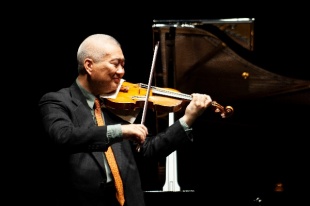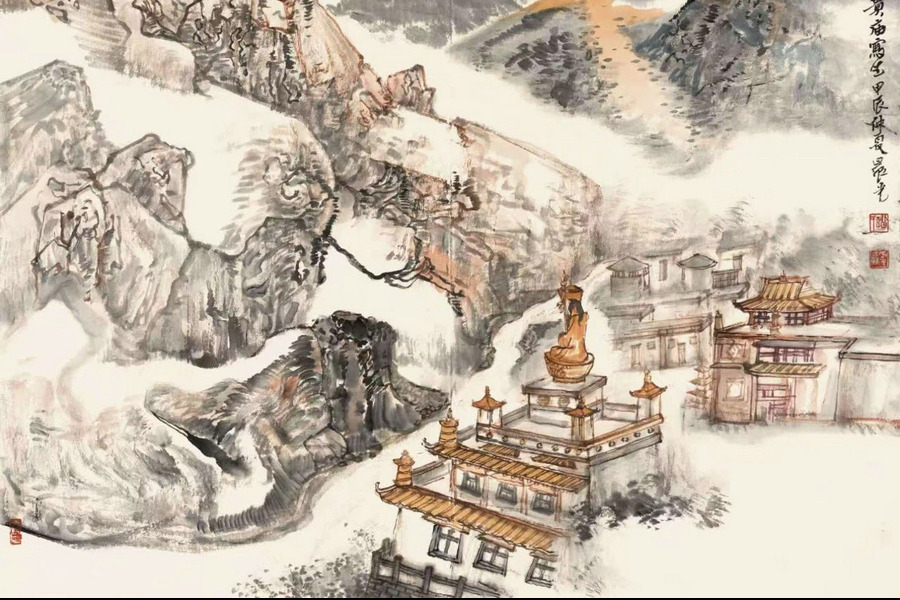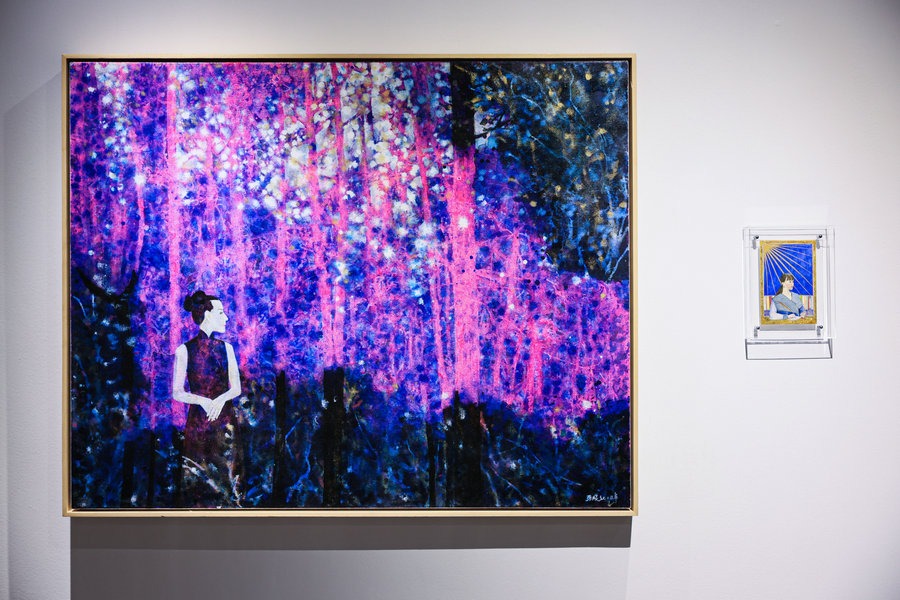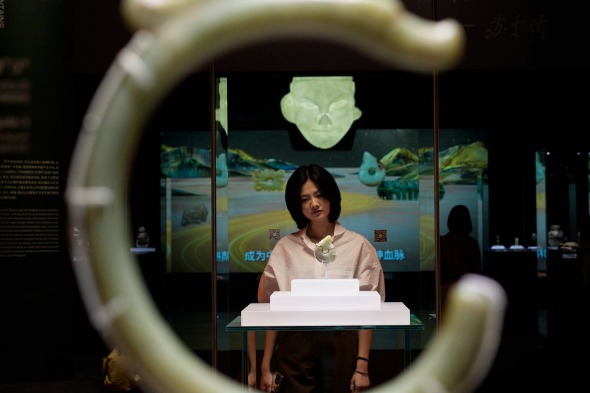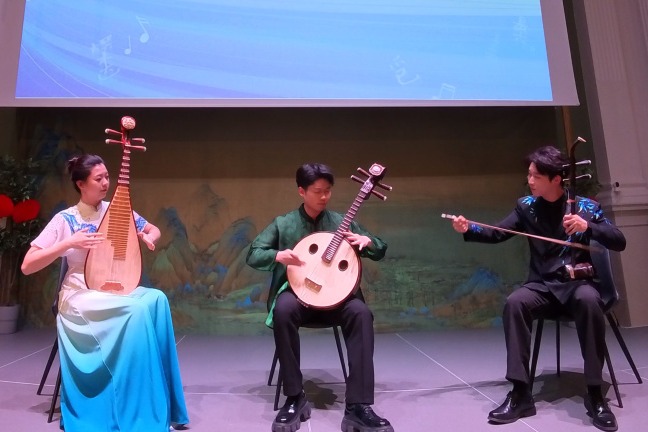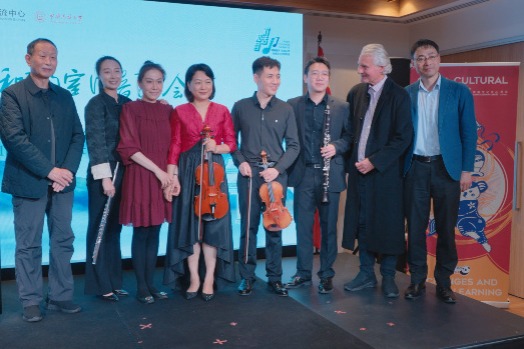Striking the right chord

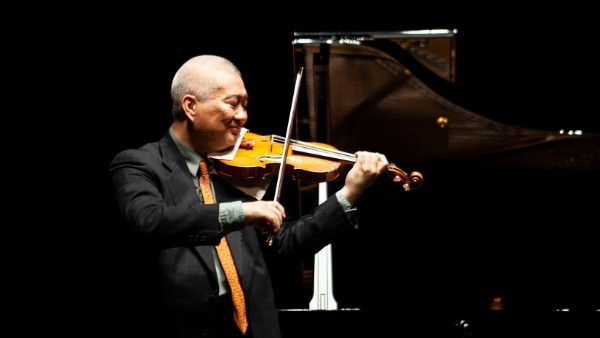
The theater lights dim, leaving only the spotlight on the stage. The whispering crowd falls silent as they train their eyes on the artist, collectively holding their breath in anticipation.
Gently and deftly, Chin Kim picks up his violin, an instrument he's known for more than 55 years. A melody pours mellifluously from its vibrating strings, switching from major to minor, with several deceptive cadences thrown in between, followed by a bravura flourish and a series of extraordinary trills that celebrate the 15-minute sonata's charged theme.
"It's the Violin Sonata in G minor, or the Devil's Trill, by Giuseppe Tartini," Kim told China Daily during a rehearsal in Wuxi, Jiangsu province in May. He stretches out two fingers to imitate the tiptoeing demon that reputedly appeared at the composer's bedside, inspiring the composition.
The Korean-born American classical violinist, who has been actively performing in North America, Asia and Europe for over three decades, has recently completed his debut China tour. He traveled to 18 cities across the mainland in the span of a month.
"I love giving concerts. And I want to spread classical music as far around the world as possible. So when a tour of China was suggested, I said yes," he says.
Kim managed to take time out from his hectic schedule to experience the city.
" (China has) beautiful towns and nice people. I was told to be careful with the street food, but I just had to try it," he says. "Chongqing hotpot is really good."
Kim's way of repaying the courtesy he has found in China is to deliver magnificent recitals, performing some of the most dazzling works in his repertoire such as pieces by Tartini, Johann Sebastian Bach and Jascha Heifetz.
At the age of 62, Kim believes his musicality and virtuosity are still in their ascendancy, and that he continues to gain a deeper understanding of each master work he plays on a daily basis.
"Every time you pick up a piece you have played before, you have to look at it like you have never seen it before, and make it into something new," he says.
"So, for every concert I like to try something new. It might be a change to the fingering, phrasing or tempo, but I keep experimenting with different things to see if I can find a better way to do it."
The Wuxi stop of his tour turned out to be major success, especially since Kim managed to enchant the audience of some 500 people with his deft mastery of the instrument in a two-hour feast for the ears.
"It was well worth it. He's got such an expressive tone. He gave us a fantastic solo," says Du Jiehua, a 40-something accountant and music lover.
As much as Kim is satisfied with his personal achievements, he frets about the shrinking fan base for classical music in North America these days. The teacher at Mannes College of Music in New York attributes the predicament to the general decline in educational and cultural awareness and values.
"Classical music is in danger of shrinking," he says.
"In America, younger children's exposure to classical music is not enough. In Paris if you walk down a street you'll hear Mozart. But you don't get that in New York, maybe only in some fancy cafe."
Compared with the US market, the relatively nascent Chinese market is showing every sign of being robust, especially when it comes to teaching music. At least 40 million Chinese children play the piano alone, according to a report in the March edition of Gramophone, the influential London-based music magazine, which concluded that China holds the key to the future of classical music.
That sentiment is echoed by Chinese musical cognoscenti.
"More and more families let their children study classical music," says Cui Jianbin, director of operations at the Wuxi Grand Theater.
"And an increasing number of world-class symphony orchestras and musicians come to China every year, as they see it as the world's largest market for classical music," Cui adds.
This self-evident phenomenon has not been lost on Kim.
"In the US most of the audience has gray hair. Here in China I've seen a lot of children, which is a very good sign," he says.
"Many people think you have to know something about classical music to appreciate it and that's simply not true. You don't have to know anything about it-just come and feel it."


